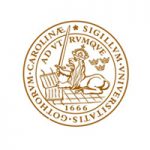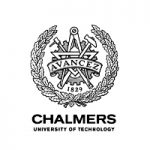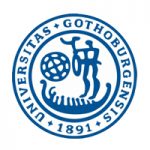项目介绍
Lund University was founded in 1666 and is repeatedly ranked among the world’s top universities. The University has around 47 000 students and more than 8 800 staff based in Lund, Helsingborg and Malmö. We are united in our efforts to understand, explain and improve our world and the human condition.
Lund University welcomes applicants with diverse backgrounds and experiences. We regard gender equality and diversity as a strength and an asset.
Subject description
Amyloid aggregates in the brain are found in neurodegenerative diseases such as Parkinson’s (PD) and Alzheimer’s diseases (AD). The underlying molecular mechanisms for the development of these diseases are not known, although the involved biomolecules have been uncovered. The questions addressed in this project are: 1) if, and to what extent does condensate formation (also called liquid-liquid phase separation) enhance amyloid nucleation? and 2) what is the molecular basis of such enhancement? A particular focus will be on the peptide structure at the interface between the condensate and the surrounding liquid. Are amyloid peptides preferentially oriented at this interface and does such orientation influence the nucleation process and its rate? Which solution conditions promote condensate formation and amyloid formation, respectively. Where are the boundaries in the phase diagram? What is the molecular mechanism behind factors that can be added to perturb the system to enhance or supress nucleation? The project will include a wide range of methods such as protein expression and purification, optical and electron microscopy, fluorescence, circular and linear dichroism spectroscopy, fluorescence polarization, microfluidic approaches, NMR spectroscopy, etc.
The research project takes place within the COMMONS Center of Excellence (www.physchem.lu.se/commons). The overarching aim of COMMONS is to provide a multifaceted scientific environment focusing on unifying physicochemical processes of key importance for the function of cellular membranes and their effects on other biomolecules. The COMMONS Center brings together methodological and theoretical expertise from Lund University, Chalmers and Copenhagen University, and will serve as host for a Graduate School and a Visting Professor Program to attract international experts from a broad field of biomembrane science.
The postdoctoral researchers will be able to develop their scientific skills and knowledge within the interdisciplinary Center, which will also impact on outcomes from the research projects. The COMMONS Center is led by a group of PI’s from the participating Universities (Emma Sparr, Sara Linse, Fredrik Höök, Martin Malmsten) whom together with additional scientists and guest professors within COMMONS will guide the projects and the training of the recruited postdocs towards leading academic or industrial research positions.
This post-doctoral position is also part of the EU cofund research project AMBER, Advanced Multiscale Biological imaging using European Research infrastructures, which will address scientific and sectoral gaps in biological imaging ranging from molecular, through cellular, to tissue, organ and organism levels of organisation, and is coordinated by LINXS Institute of advanced Neutron and X-ray Science.AMBER is funded by the EU Marie Skłodowska-Curie (MSCA) COFUND scheme.Around 15 postdocs will be recruited in the Second call 2024, with each fellowship lasting 36 months.
AMBER has six core partners: Lund University/MAX IV, Sweden, the European Spallation Source (ESS), Sweden, the European Molecular Biology Laboratory (EMBL), Institut Laue-Langevin (ILL), France, the International Institute of Molecular Mechanisms and Machines, (IMOL), Poland, and the Leicester Institute of Structural and Chemical Biology, United Kingdom.
Your work will include biomedical and biophysical research. It will also include technique development work aimed at combining imaging techniques and data analysis to provide a more integrated picture of life processes in the context of health and disease. To be a postdoc fellow at the AMBER programme you will get unprecedented medical, biological, and methodological capabilities, with a profound potential impact for Europe’s next generation of research and researchers. When you have completed the AMBER programme you will be extraordinarily well equipped to further your career in academia, at infrastructures, in the health and MedTech sectors, and beyond.
For more information about the total announced post-doctoral positions within in the AMBER co-fund project please visit:
The interviews will start in November. For more information about AMBER, application and evaluation process etc please visit:
Work duties
The main duties involved in a post-doctoral posistion is to conduct research. Teaching may also be included, but up to no more than 20% of working hours. The position shall include the opportunity for three weeks of training in higher education teaching and learning.
You will perform research within the research project outlined above. You will also contribute to the development of the broader thematic themes and collaborate with several members of the COMMONS Center. The research is experimental and be executed in an environment offering access to instruments for state-of-the art methods, including optical spectroscopy, scattering techniques, surface-based techniques, nuclear magnetic resonance (NMR) spectroscopy, single molecule fluorescence microscopy, mass spectrometry, and electron microscopy.
The main duty of the successful candidate will be to execute experimental research in the research area outlined above. Additional tasks include:
- Coordination of collaborations within the subject area with international partners
- Co-supervision of degree projects and doctoral students enrolled in the COMMONS research school
Qualification requirements
Appointment to a post-doctoral position requires that the applicant has a PhD, or an international degree deemed equivalent to a PhD, within the subject of the position.
Minimum requirements are:
- candidate needs to have a maximum 8 years after a doctoral degree (PhD), as required by the project Grant Agreement signed with the European Commission,
- a background in the relevant methods,
- a complete application package submitted through the AMBER portal (including CV and detailed research plan),
- strict compliance with the MSCA mobility rule that the researcher must not have resided or carried out his/her main activity (work, studies, etc.) in the host organisation’s country for more than twelve months in the three years immediately prior to the call deadline.
Each project will have additional specific requirements that candidates have to fulfill, be sure to check what these are before you apply.
Additional requirements:
- Very good oral and written proficiency in English.
- Strong documented research experience of experimental studies of soft matter, including biomolecular systems.
- Hands-on experience with research within biophysics, physical chemistry or equivalent.
- Having co-authored several publications in international journals with a review system, at least two of them as first author.
Assessment criteria and other qualifications
This is a career development position primarily focused on research. The position is intended as an initial step in a career, and the assessment of the applicants will primarily be based on their research qualifications and potential as researchers.
Particular emphasis will be placed on research skills within the subject.
For appointments to a post-doctoral position, the following shall form the assessment criteria:
- A good ability to develop and conduct high quality research.
- Teaching skills.
Additional assessment criteria:
- Experienced in experimental methodologies for investigating biomolecular self-assembly at surfaces or in bulk solutions, including several of the following: optical super-resolution microscopy, single-molecule fluorescence techniques. electron microscopy, fluorescence spectroscopy, circular and linear dichroism spectroscopy, fluorescence polarization, NMR spectroscopy, surface techniques, titration calorimetry, scanning calorimetry, microfluidic approaches to diffusion, free-flow electrophoresis or droplet-based methods.
- Experience with experimental methodology development towards increased physicochemical understanding of molecular systems.
- Experience with protein expression and purification or membrane preparation techniques.
Consideration will also be given to good collaborative skills, drive and independence, and how the applicant’s experience and skills complement and strengthen ongoing research within the department, and how they stand to contribute to its future development.
Terms of employment
This is a full-time, fixed-term employment of a maximum of 3 years. The period of employment is determined in accordance with the agreement “Avtal om tidsbegränsad anställning som postdoktor” (“Agreement on fixed-term employment as a post-doctoral fellow”) between Lund University, SACO-S and OFR/S, dated 1st February 2022.
Instructions on how to apply
For more information and documents/templates/europass link, please visit:
Incomplete applications will not be considered. Please make sure that you upload all the required documents specified below i-ix.
If you are interested in applying for more than one position (maximum 3) you must be prepared to make a full application for each individual position.
Applications shall be written in English and all documents shall be in pdf format.
i) A Curriculum Vitae (europass format). Your CV shall be exported to a PDF file that you use in your application.
ii) A detailed research plan including any foreseen secondments (candidates can suggest more than the mandated one, they can also suggest their own secondments), schools and conferences as well as a templated budget plan. The research plan should be as concise as possible, recommended about 3-5 pages, but at an absolute maximum 10 pages. The research plan should include a half page of summary/abstract.
Additional texts to include in the PDF are:
iii) Letter of Commitment from any additional secondment partners the candidate wishes to bring onboard.
iv) Evidence of English proficiency (minimum CEFR B22, also checked at interview).
v) A draft Individual Career Development Plan (ICDP).
vi) Two reference letters.
vii) Any additional documents to support the application.
viii) Ethical questionnaire (HE ethics checklist + research ethics commitment)
In addition, the application will require:
ix) Any candidate can apply for maximum of 3 positions. You must apply for each individual position. A list with order of preference of positions should be sent to the AMBER management. amber@linxs.se
The Faculty of Science conducts research and education within Biology, Astronomy, Physics, Geosciences, Chemistry, Mathematics and Environmental Science. The Faculty is organized into eight departments, gathered in the northern campus area. The Faculty has approximately 1500 students, 330 PhD students and 700 employees.
联系方式
电话: +46 (0)46 222 0000相关项目推荐
KD博士实时收录全球顶尖院校的博士项目,总有一个项目等着你!






